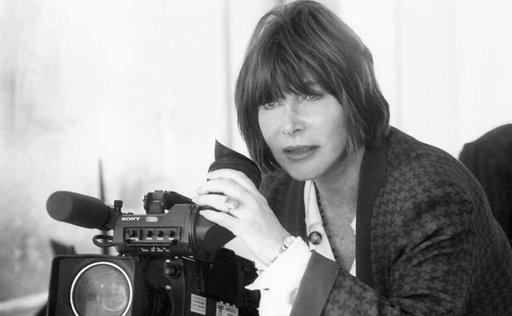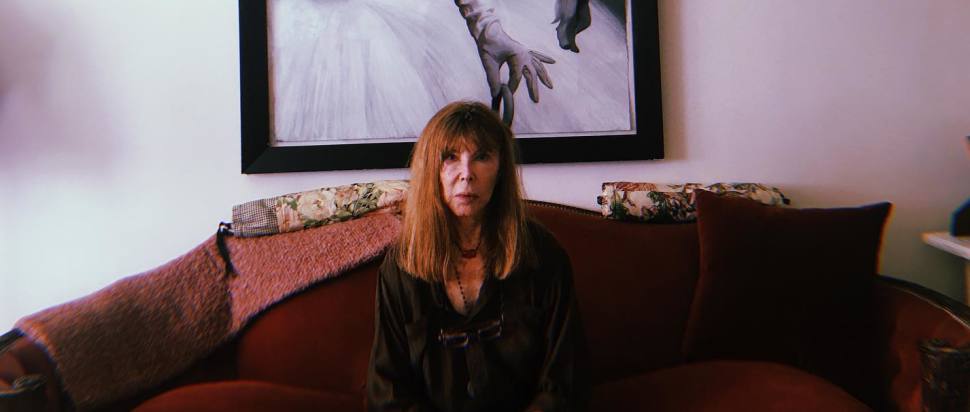Voices from the Margins: Lee Grant interview
Lee Grant has lived a life. Cannes award-winner at 22. Blacklisted during the Communist witch hunts. An icon of 70s New Hollywood. A pioneering documentarian in the 80s. We discuss her extraordinary career ahead of her Glasgow Film Festival retrospective
We’ve caught Lee Grant a little off guard. The Oscar-winning actor and documentarian was enjoying her morning coffee and raisin bread when she was reminded of this interview. “They called and said, ‘Oh, you have a thing on TV with Jamie in an hour.’ And I said, ‘What?’ So I hurried to get ready.” I start to explain she needn’t have gone to so much trouble, this is a print interview, but she cuts me off. “Listen. I'm an old actress. So just in case there’s any chance of this seeing the light of day, I’m not gonna come out here in my nightgown. A camera is on. So I’ve put on my street makeup and put a little pencil on my eyes, you know?”
Well you look great, I tell her. And she does! Well into her 90s now (her precise age is a closely guarded secret), she still exudes the sassy glamour she was famous for on screen. “What do you know,” she chuckles. “You’re just a kid.”
Grant is speaking to us via Zoom from her flat in Manhattan’s Upper West Side, just a few blocks from 148th Street, where she was born and raised. It’s become her whole world since COVID struck.
“We have been living in the midst of a serious illness," Grant says. "My husband, Joey, got COVID, and Phyllis [Grant's sister-in-law] thought she had COVID and ran herself to the infirmary yesterday. I mean, we are living in the most charming apartment in the world, and all our friends come here for dinner because my husband and Phyllis are Italians and they're great cooks. But our island is this apartment, and the fear of COVID is everywhere.”
This isn’t to say Grant is living in an ivory tower cut off from the world. Far from it. We’re speaking on the day following the Brazilian Congress attack, and she’s incredibly fired up about Bolsonaro and Trump, and events unfolding in Ukraine and Iran and Afghanistan. “I have a great life in this house, but being a documentary maker, and being a formally blacklisted actor, you know, my political sense is so sensitive. So I’m checked in with what's going on, it’s always on my mind.”
Aside from being a massive flirt and a political firebrand, there are many other reasons why one would want to speak with Lee Grant. Few Hollywood stars have gone on quite the rollercoaster that she has. As a screen actor, she exploded right out of the gates. In 1951, while in her early 20s, Grant made her screen debut with the delicious role playing a young shoplifter in William Wyler's Detective Story. The performance won her the Best Actress award at Cannes and an Oscar nomination for Best Supporting Actress. But then it all fell apart when she gave a speech at the memorial service for actor J. Edward Bromberg the same year.
Bromberg was a communist who died of a heart attack while being hounded by the House Un-American Activities Committee, which was set up in 1938 to investigate subversive activities of people or groups with communist ties and became a tool of McCarthyism in the 40s and 50s. The day after giving the eulogy to Bromberg, Lee found herself on the same blacklist, and she stayed there for 12 years. “From age 22 to 34 I was out," she says. "I didn't go to Hollywood until I was in Peyton Place. I was cleared, but my career didn't start again until I was of a certain age for, you know, a Hollywood star.”
She’d been denied 12 years of her career, but for the next 12 years she made up for it as the floodgates opened, just as American cinema was about to go through its New Hollywood renaissance. “My appetite for acting, for working, for going from one part to the next – it was like I was drowning in this gorgeous feeling of being wanted and doing stuff that was exciting and interesting," says Grant. "Oh you want me? Well, let me see, because this director wants me too, and this director wants me too. So who shall I pick? It was such a joyous working time.”

Lee Grant, credit: Lifetime
Among the filmmakers she chose to work with in this purple patch were Norman Jewison, with whom she made the groundbreaking In the Heat of the Night, and her most regular collaborator Hal Ashby, who cast Grant in The Landlord and Shampoo. In the latter, she plays the most demanding and high-strung of the women being bedded by Warren Beatty’s sex-obsessed hairdresser. It’s a wonderful performance, both funny and poignant. Her peers in Hollywood agreed; it won her the Best Supporting Actress Oscar.
“As bad as the last 12 years when I was blacklisted were, the next 12 were glorious," says Grant "But then I turned 49, which is when, you know, as actresses, your saleability runs out.”
Incredibly, as the 70s came to a close and her acting offers began to dry up, Grant delivered a glorious third act: she turned her hand to directing. The reason for this interview is an upcoming retrospective at Glasgow Film Festival – titled Looking for America: The Films of Lee Grant – celebrating the extraordinary run of documentaries she made in the 1980s. All explore vital social issues of the day and paint a damming portrait of Reagan-era America. As well as directing, Grant acts as narrator and interviewer, although her style is a world away from the grandstanding of Michael Moore or Nick Broomfield, with the focus always on the individuals at the heart of her films.
Her subjects range from gender discrimination in the workplace (The Willmar 8, 1981) to domestic violence (Battered, 1989) to a pioneering film about transgender rights (What Sex Am I?, 1985). The most celebrated film of this run was 1986’s heartbreaking Down and Out in America, looking at the epidemic of homelessness across the US, from bankrupt farmers in the Midwest to tented homeless communities in LA. It won Grant her second Oscar, for Best Documentary Feature.
What connects these films is that they’re all concerned with giving voice to people who have been marginalised. It’s easy to assume that the injustice Grant faced in the 50s and 60s during McCarthyism is why she spent her new-found career as a documentarian giving voice to oppressed people. But when I put this to her, Grant suggests her instinct to protect goes back much further, to a foundational moment in her childhood.
She recounts a story of when she was nine, and saw a young woman being attacked in the street. “I walked up to Broadway,” she recalls. "And on the opposite side of the street, a man was trying to get at a woman who was afraid of him. They were out in the gutter. And she was running. And he was after her. And the people walking on Broadway stopped to watch, like it was a movie.”
When no adult intervened, nine-year-old Grant did. “I ran up the block to find a policeman to stop it. But by the time I came back with the policeman that I found, everybody was gone, the woman was gone. I said to the policeman…” Grant starts to cry here, but the sadness of the memory is mixed with rage. “I said to the policeman, that man was trying to kill her. And he said, 'Oh, they're probably in a bar someplace having a good time. Don't worry about it.'
“So what I'm trying to say is, that sense of connecting with people who are being hurt, I think that sense was born in me. I always had that. And I think it worked for me as an actor, you know? Because you connect with the feelings of other people. But what I’m trying to say is, I think that all of the documentaries that I made, had to do with giving a voice to that lady.”
If you head along to Grant's sensitive and deeply empathetic documentaries at GFF, you’ll see that there’s no one else you’d want to have in your corner, amplifying your voice.
Glasgow Film Festival's retrospective Looking for America: The Films of Lee Grant runs 8-12 Mar, CCA, Glasgow. Tickets at glasgowfilm.org
